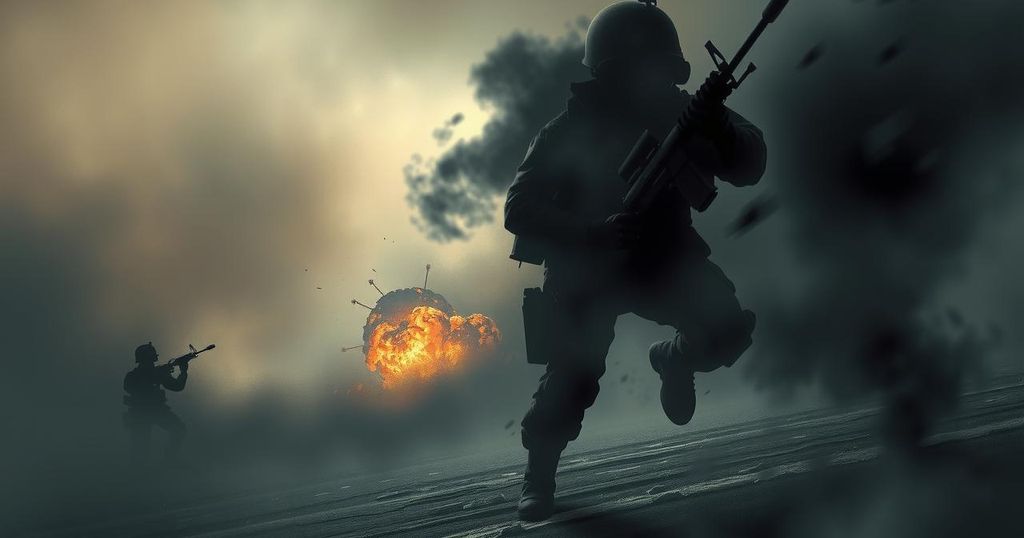Escalating Conflict: Houthi Leadership Declares War on America Amidst U.S. Airstrikes
The article outlines the recent heightened conflict involving the Houthis, labeled as terrorists by the U.S., as President Trump escalates airstrikes aimed at Houthi military activities. Jamal Amer, the Houthi foreign minister, asserts their autonomy despite claims of Iranian influence and emphasizes the detrimental humanitarian implications of U.S. actions. The analysis reflects on the broader regional tensions, the previous failures of military interventions, and the Houthis’ contentious governance practices amid calls for peace.
Amidst escalating tensions, the Houthis, marked as a terrorist organization by the United States and supported by Iran, have indicated their resolve in what they call a war against America. President Trump’s administration is ramping up airstrikes in Yemen, expressing their intent to achieve success where previous military efforts have faltered. Recent missile attacks by the Houthis targeting Israel illustrate the ongoing conflict dynamics.
The U.S. Navy, engaged in extensive airstrikes in the Red Sea over the past six days, has aimed to neutralize Houthi leadership alongside targeting their military assets. Houthi Foreign Minister Jamal Amer emphasized the casualties are regrettably a part of war, but he claims they do not affect senior leaders. The Houthis accuse the U.S. of harming civilian lives, which the U.S. government strenuously denies.
As of November 2023, the Houthis have actively engaged in piracy, hijacking vessels and endangering international sailors under the pretext of solidarity with Gaza. They have since paused these maritime aggressions, citing humanitarian concerns, yet threatened further military action following Israel’s blockade of aid to Gaza. The U.S. has committed to continuous strikes until the Houthis cease such actions against commercial interests in the region, according to Defense Secretary Pete Hegseth.
Mr. Amer stated that Houthi military actions will cease when aid to Gaza is restored, labeling current naval responses as retaliatory to U.S. aggression. He disputes any notion of external control by Iran, framing Yemen’s actions as sovereign decisions. He describes Yemen’s government leadership as an outcome of foreign interference and remains firm in their stance against U.N. recognized authority.
Criticism of Houthi governance persists, highlighting their oppressive tactics and lack of genuine commitment to peace, illustrated by their controversial detaining of U.N. staff and seizure of humanitarian supplies. Amer defends the government’s decisions as necessary responses to perceived threats. With Yemen continuing to grapple with severe humanitarian issues exacerbated by the conflict, the potential for renewed violence looms large as the U.S. endeavors to quell Houthi influence in the region.
In summary, the Houthis maintain a firm stance against U.S. actions, labeling it as a direct war. As the Trump administration intensifies airstrikes, the Houthi leadership insists on their sovereign right to respond to perceived aggression. The complexities of regional dynamics, the humanitarian crisis, and the intricate alliances at play underscore the challenges in achieving peace in Yemen amid ongoing hostilities.
Original Source: www.pbs.org




Post Comment